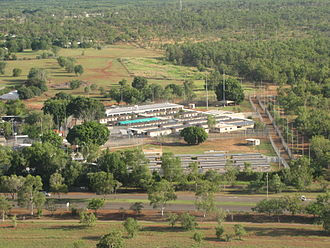Australian Immigration Detention Facilities
- Ryan Campbell
- Jan 15, 2022
- 3 min read
Ryan Campbell
Ever since December of 2008, Australia has had arguably the most restrictive immigration system in the world. Australia has participated in numerous measures to keep refugees out while imposing harsh punishment on those who try to flee there, something supported by both of Australia’s major political parties. Offshore detention camps have served as a deterrent and punishment for over 3,000 asylum seekers since 2013 who have been forcibly transferred to centers heavily criticized by human rights groups for their dismal conditions. But protest and growing outrage from human rights groups have not affected Australia’s Policy as they renewed the neighboring country Nauru to keep detention centers open indefinitely.

Already vulnerable asylum seekers, fleeing from violence in their home countries, are subjected to more abuse in Australia’s detention centers from inhumane treatment to medical neglect. According to The Human Rights Watch, the cruelty in these camps have caused suffering to thousands of asylum seekers and driven seven people to suicide over their years of operation. More have been killed through medical neglect or even direct attacks from the guards there. In 2016, the frequency of incidents in these camps were reported by the Guardian in the Nauru files, where there were numerous reports of sexual assault, theft, and abuse- many by officials in the camps themselves. Those who do survive the perilous journey to a new country and the torturous conditions are forced to languish in these detention camps for years on end, with little indication of an end. Currently, Australia is paying Nauru millions of dollars a year to operate such centers. It’s a stark contrast to Australia’s previous history of welcoming newcomers.
Human rights groups have called this treatment a violation of international law, and the United Nations have urged Australia to resettle immigrants after numerous reports of self-harm and suicide attempts, and while these pleas did shut down Australia’s detention centers in Papua New Guinea, they have yet to dismantle the abusive system entirely. Australia is yet to come up with a good defense of their policy, stating, “it deters many migrants and is an important part of its overall immigration policy”.
But are Australia’s actions a violation of international law? It appears yes, they are. International law states that immigration detention is not a form of punishment, but rather a measure of last resort to execute a legitimate aim. It also dictates that migrants should be held for as little time possible and only be lawfully deported after full and fair asylum procedures. This definition does not seem to fit Australia’s policies. International prosecutors have also claimed these centers are unlawful. One prosecutor on the International Criminal Court stated offshore detention was “cruel, inhumane, or degrading treatment” which is illegal under international law. Even the United Nations has called these practices a violation of the Convention Against Torture, concluding, “The Migration and Maritime Powers Legislation Amendment … violates the Convention Against Torture because it allows for the arbitrary detention and refugee determination at sea, without access to lawyers”. The Convention Against Torture is one of the most widely accepted international treaties in the world- and after signing it in 1989, Australia is legally bound by it. This is without considering the fact that children are also detained in these camps, something strictly prohibited by international law.
A testimonial from Abbas Maghames, an Iranian asylum seeker, fully highlights the cruelty of this system. “We need to get out from detention. It’s been almost nine years I’ve been in limbo. Everyday I’m suffering. My mental health is getting so worse. This is not a correct solution. Australia doesn’t treat me like a human. It’s not right to treat anyone like this. Every night I have nightmares. We live with stress and depression every single day. We are so suffering. We are so tired.”
.png)
Comments